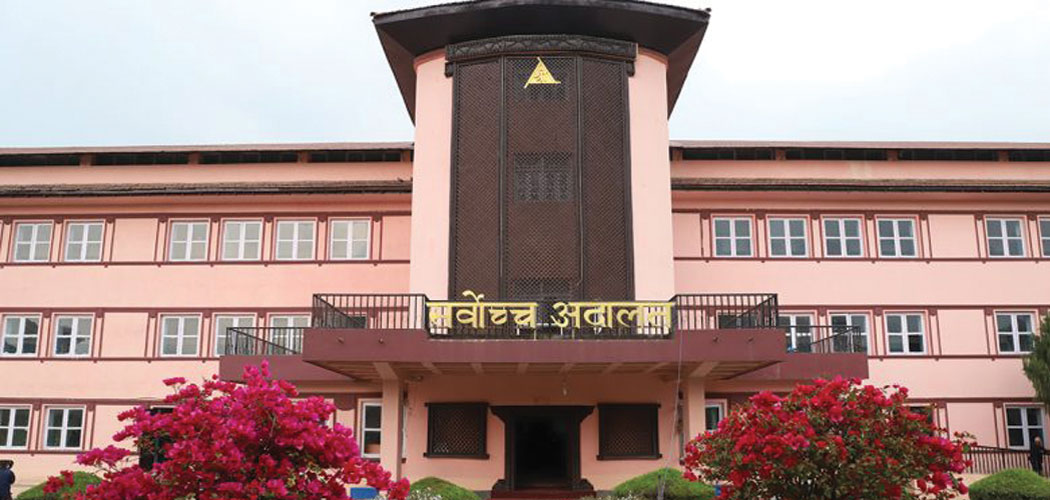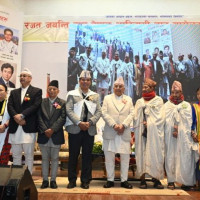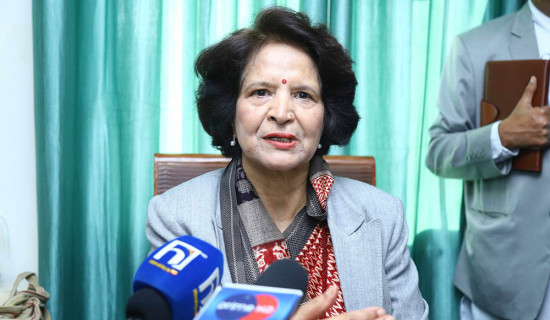- Monday, 9 February 2026
Supreme Court´s construction denial in protected areas hailed
Kathmandu, Jan. 17: Conservationists welcomed the decision of the Supreme Court on Wednesday to revoke legal provisions which facilitated the implementation of development and construction projects in national parks and wildlife reserves.
A bench comprising Chief Justice Prakashman Singh Raut and Justices Sapana Pradhan Malla, Kumar Regmi and Dr. Manoj Kumar Sharma cancelled Sections 5(A) and 6(1A) of the National Parks and Wildlife Conservation Act, 2029. Justice Sapana Pradhan Malla supported the decision with a differing perspective, while Justice Hari Phuyal expressed a dissenting opinion, stating that there was no need to annul the provisions.
According to Section 5(A) of the National Parks and Wildlife Conservation Act, 2029, no person is allowed to engage in hunting within a national park or reserve without obtaining written permission from the authorized official. Section 6(1A) of the Act stipulates no person may operate any services or facilities within the national park, reserve, or conservation area without entering a contract as outlined in the Act.
However, the bench of justices annulled the amendment, stating that it violated the constitution. The provision, introduced as part of reforms intended to facilitate investment, was ultimately believed unconstitutional.
Welcoming the decision, Kumar Paudel, Founder and Director of Greenhood Nepal, a science-driven conservation organisation, said, “This is an excellent and timely step by the Supreme Court to preserve Nepal’s protected areas from destruction. It demonstrates that the court remains the last bastion for biodiversity conservation when government policies are influenced by interest groups and commercial corporations.”
He further added, “This decision serves as a reminder that national parks were established for a reason - biodiversity conservation. These parks were created at the cost of thousands of indigenous community members, and it is unjust for governments to allow the commercial exploitation of these areas.”
Dr. Ravi Sharma Aryal, Chairperson of the International Union for Conservation of Nature (IUCN) World Commission on Environmental Law (WCEL), Nepal Chapter said that the Supreme Court's decision is one of the most significant steps toward protecting national parks and ensuring biodiversity conservation. He said that this decision will safeguard the reputation Nepal has earned in recent years by increasing the number of tigers and expanding forest coverage.
The decision prevents the haphazard construction of infrastructure, railway lines and mega projects, including hotels. However, President Ram Chandra Paudel issued the land-related bill on Wednesday, which has once again cast uncertainty over forests and protected areas. “This is yet another similar ordinance, but let’s see how it will settle,” Dr. Aryal said.
President Paudel issued the ordinance to amend some of Nepal’s land-related Acts to utilize forest and protected land for the resettlement of squatters and landless individuals. “We believe that the Supreme Court will always act in favour of the country and its long-term conservation goals,” he added.
At the same time, various conservationists tweeted welcoming the Supreme Court’s decision. One among them, ornithologist Dr. Hem Sagar Baral said in his X handle (formerly Twitter), “Once again, Nepal’s Supreme Court has delivered a verdict to safeguard the country’s protected areas.
The government’s investment in community support and contributions from conservation organisations would all have been wasted if this revision Act had proceeded.”
The government passed a new policy on January 4, 2024, which permits infrastructure projects in any protected areas that are very sensitive to wildlife and ecology.
Senior advocates Prakash Mani Sharma, Dilraj Khanal and Padam Bahadur Shrestha filed a writ in the Supreme Court demanding to null the new policy saying it was against the conservation commitments.







-square-thumb.jpg)








